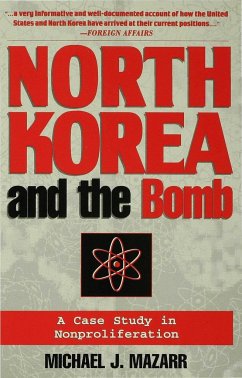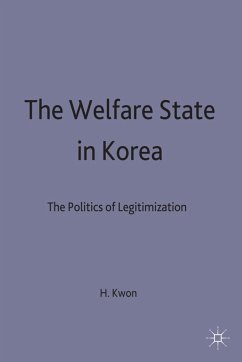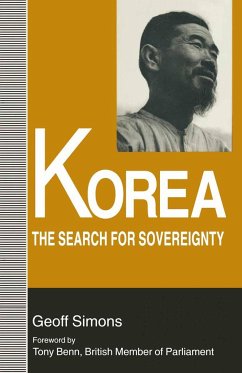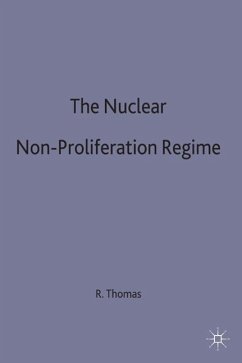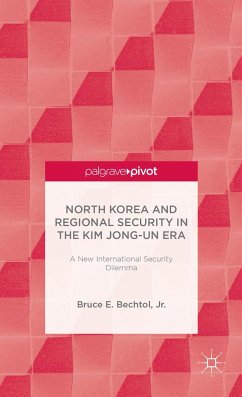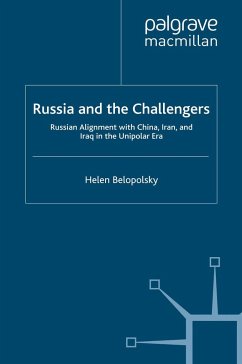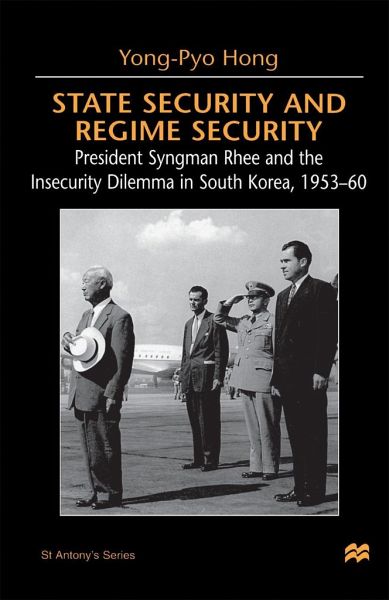
State Security and Regime Security
President Syngman Rhee and the Insecurity Dilemma in South Korea, 1953-60
Versandkostenfrei!
Versandfertig in 6-10 Tagen
76,99 €
inkl. MwSt.

PAYBACK Punkte
38 °P sammeln!
This book examines the interaction between state security and regime security in South Korea under the leadership of President Syngman Rhee in the period 1953-60. In examining the reasons which led Rhee to repeatedly call to "march North," such as to remove the Communists and to empower Korea in the aftermath of the Korean War, the author shows that the "march North" was a manifestation of Rhee's concern for both state and regime security. Rhee's aggressive anti-Communist policy contributed to the promotion of security in South Korea. As he declined in popularity, Rhee's concern for the surviv...
This book examines the interaction between state security and regime security in South Korea under the leadership of President Syngman Rhee in the period 1953-60. In examining the reasons which led Rhee to repeatedly call to "march North," such as to remove the Communists and to empower Korea in the aftermath of the Korean War, the author shows that the "march North" was a manifestation of Rhee's concern for both state and regime security. Rhee's aggressive anti-Communist policy contributed to the promotion of security in South Korea. As he declined in popularity, Rhee's concern for the survival of the regime increased and he used the prevailing anti-Communist feeling to enhance his legitimacy. However, such tactics could ensure neither regime security nor the security of South Korea.





